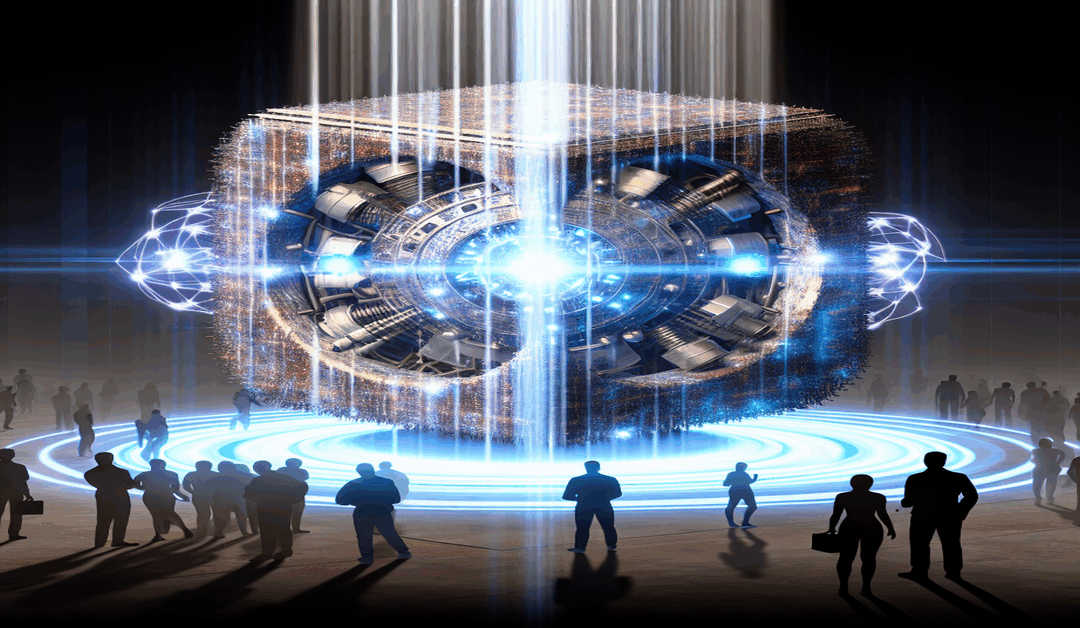Artificial Intelligence: A Double-Edged Sword in the Hands of Democracy and Autocracy
The advent of Artificial Intelligence (AI) has revolutionized various aspects of our lives, from healthcare and education to business and entertainment. However, as AI continues to advance at an unprecedented pace, its impact on politics and society has become increasingly significant and controversial. While AI has the potential to enhance democratic processes and improve governance, it also poses significant risks when wielded by autocratic regimes and terrorist organizations.
AI and Election Influence
One of the most concerning aspects of AI’s impact on politics is its ability to influence elections. In recent years, we have witnessed the rise of **disinformation** campaigns, where AI-generated content, such as deepfakes and manipulated social media posts, is used to spread false information and manipulate public opinion[1]. These campaigns can have a significant impact on voter decisions and undermine trust in democratic processes.
AI algorithms can also be used to **micro-target** specific groups of voters with tailored messages and advertisements, based on their personal data and online behavior[4]. While this can be used for legitimate campaigning purposes, it also raises concerns about privacy and the potential for manipulation.
AI as a Weapon for Autocrats and Terrorists
The use of AI by autocratic regimes and terrorist organizations poses even greater risks to democracy and global security. Autocratic governments can leverage AI tools to enhance their surveillance capabilities, monitor citizens’ online activities, and suppress dissent[5]. They can also use AI to generate propaganda and spread disinformation, both domestically and internationally, to maintain their grip on power and undermine democratic movements.
Similarly, terrorist groups can exploit AI to spread their ideology, recruit new members, and plan attacks. AI-generated propaganda videos and social media content can be used to radicalize individuals and incite violence[5]. Moreover, AI can be used to develop more sophisticated weapons and cyber-attacks, posing significant threats to national security.
Global Risks and Challenges
The use of AI by malicious actors poses significant risks to democratic systems and global stability. AI-powered disinformation campaigns and foreign interference can exploit internal divisions and undermine the integrity of elections[5]. This can lead to a erosion of trust in democratic institutions and a rise in populist and extremist movements.
Moreover, the development of AI-powered weapons and the potential for an AI arms race between nations could have devastating consequences for international security. The lack of transparency and accountability in the development and deployment of AI systems also raises concerns about the potential for unintended consequences and the need for ethical considerations.
Regulatory Efforts and the Way Forward
To mitigate the risks posed by AI in the context of politics and society, there is a growing need for robust regulation and public awareness. Governments and international organizations are increasingly recognizing the importance of developing ethical guidelines and legal frameworks for the development and use of AI[1].
In the United States, there have been bipartisan efforts to introduce legislation that would prohibit the use of deceptive AI-generated content in elections[4]. There are also ongoing educational efforts to prepare the public for the challenges posed by AI-generated media and to promote media literacy.
However, the global nature of AI and the rapid pace of its development poses significant challenges for regulation. International cooperation and collaboration will be essential to ensure that AI is developed and used in a responsible and ethical manner, and to prevent its misuse by malicious actors.
Conclusion
The impact of AI on politics and society is a complex and multifaceted issue that requires urgent attention and action. While AI has the potential to enhance democratic processes and improve governance, it also poses significant risks when wielded by autocratic regimes and terrorist organizations. The need for robust regulation, public awareness, and international cooperation is crucial to mitigate the negative impacts of AI and ensure that it is used for the benefit of all.
As individuals and as a society, we must remain vigilant and proactive in addressing the challenges posed by AI. We must advocate for responsible development and use of AI, support efforts to regulate its use, and promote media literacy and critical thinking skills. Only by working together can we harness the power of AI for good and prevent its misuse by those who seek to undermine democracy and global security.
#ArtificialIntelligence #Democracy #Autocracy #GlobalSecurity
-> Original article and inspiration provided by LIGA
-> Connect with one of our AI Strategists today at Opahl Technologies

